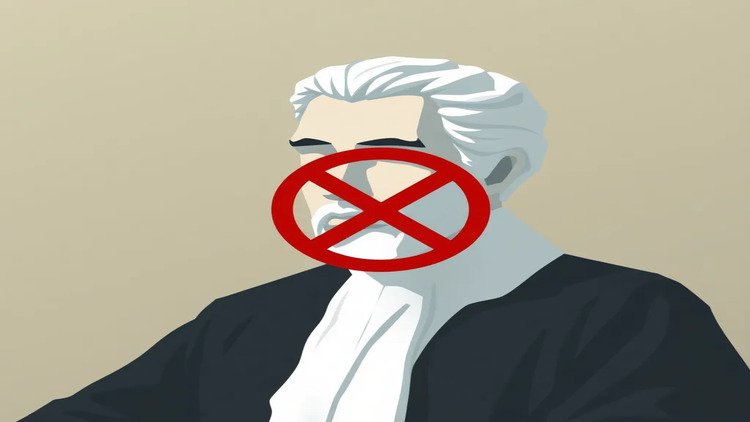US Judge rules software code does not qualify as free speech in Tornado Cash case
A US judge has ruled that software code, specifically the code behind the privacy tool Tornado Cash, does not qualify as free speech. This ruling could have significant implications for the future of cryptocurrency regulation.

A recent ruling by a US judge has determined that software code utilized in cryptocurrency protocols, such as Tornado Cash, does not receive First Amendment protections. This decision, made by Judge Katherine Polk Failla in the Southern District of New York on September 26, has significant implications for the crypto industry, particularly concerning the legal status of developers and their protocols.
Judge Failla acknowledged that while software code can be expressive, its use for executing functions like money transmission does not qualify as free speech. This ruling sets a precedent for categorizing crypto protocols as money transmitters, even when developers do not have direct control over the funds being transmitted.
The ruling comes ahead of an upcoming trial for Tornado Cash developer Roman Storm, who faces charges including money laundering, operating an unlicensed money-transmitting business, and evading US sanctions. Storm contended that his involvement in the development and deployment of the Tornado Cash protocol should be protected under free speech laws, a claim that the judge ultimately rejected.
Key Points of the Ruling
-
Control Over Funds: Judge Failla emphasized that control over funds is not a necessary condition to qualify as a money transmitter under the Bank Secrecy Act (BSA). This aligns with the prosecution's argument that Tornado Cash and similar platforms operate as unlicensed money transmitters, failing to comply with US sanctions laws.
-
Legal Implications: The ruling has far-reaching consequences for ongoing legal disputes involving crypto protocols. It underscores the government's stance that developers can be held accountable for the actions of their protocols, regardless of whether they directly manage the funds.
Industry Reactions
The decision has faced significant backlash from the crypto community. Amanda Tuminelli, chief legal officer at DeFi Education Fund, expressed concern that the ruling could increase developer liability in unprecedented ways, stating, "The consequences of this trial will be life-changing for Storm and potentially for software developers across industries."
Jake Chervinsky, chief legal officer at Variant, criticized the ruling as a troubling precedent for software developers, declaring it an "assault on the freedom of software developers everywhere."
Despite the criticism, the ruling clarifies the contentious issue of whether crypto businesses can claim immunity from BSA requirements if they do not control the funds they facilitate.
As the case progresses, appeals are anticipated, and further legal clarifications may emerge, particularly as regulators and legislators continue to navigate the complexities of applying existing financial laws to evolving technologies.
Frequently Asked Questions (FAQ) about the Tornado Cash Ruling
1. What was the recent ruling regarding Tornado Cash?
A US judge ruled that software code used in cryptocurrency protocols like Tornado Cash does not qualify for First Amendment protections as free speech. This decision has significant implications for the legal status of developers and their protocols.
2. Who made the ruling and when?
The ruling was made by Judge Katherine Polk Failla in the Southern District of New York on September 26, 2023.
3. What are the implications of this ruling for the crypto industry?
The ruling sets a precedent that categorizes crypto protocols as money transmitters, which means developers can be held accountable for the actions of their protocols, even if they do not directly control the funds being transmitted.
4. What charges is Tornado Cash developer Roman Storm facing?
Roman Storm is facing multiple charges, including money laundering, operating an unlicensed money-transmitting business, and evading US sanctions.
5. What was Storm's argument regarding free speech?
Storm argued that his involvement in developing and deploying the Tornado Cash protocol should be protected under free speech laws, a claim that the judge rejected.
6. How did the judge justify the ruling?
Judge Failla stated that while software code can be expressive, its function—such as facilitating money transmission—does not qualify it as free speech. She emphasized that control over funds is not necessary to be classified as a money transmitter under the Bank Secrecy Act (BSA).
7. What are the potential consequences for software developers?
The ruling raises concerns about increased liability for developers in the crypto space, as it suggests they could be held accountable for the operations of their protocols, regardless of their direct involvement with the funds.
8. How has the crypto community reacted to the ruling?
The ruling has faced backlash from the crypto community. Critics, including legal experts, have expressed concerns that it sets a troubling precedent for software developers, potentially infringing on their rights and freedoms.
9. What is the Bank Secrecy Act (BSA)?
The Bank Secrecy Act is a US law that requires financial institutions to assist government agencies in detecting and preventing money laundering. It imposes obligations on entities that transmit money to comply with regulations, including licensing requirements.
10. What might happen next in this case?
As the case progresses, appeals are expected, and further legal clarifications may arise. The ongoing discussions around regulatory frameworks for cryptocurrencies will likely continue as regulators and legislators navigate these complex issues.
What's Your Reaction?














